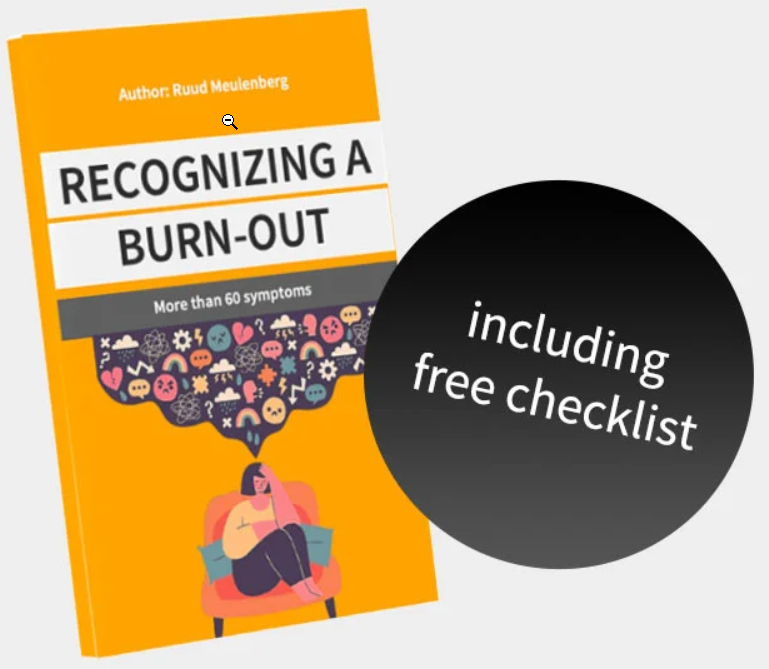Your nervous system is like a sophisticated communication network in your body, helping parts like your brain, muscles, and organs talk to each other. It’s in charge of things you consciously do, like moving and thinking, as well as automatic actions like breathing and blinking. Understanding how it works is important to grasp how your body functions in various situations.
What is the (SNS and PNS) Nervous System?
The autonomic nervous system has two branches: the sympathetic (SNS) and the parasympathetic (PNS). They usually operate independently, influencing our body’s responses.
SNS: The sympathetic system triggers the fight or flight response, originating in the brainstem and impacting muscles, glands, and organs. It works involuntarily, reacting to environmental stress, exercising, or injury, aiding in healing, boosting energy, and delivering glucose to muscles.
PNS: The parasympathetic system, centered in the brainstem, extends to organs like the digestive tract. It ensures organ balance and activates the “rest and digest” response, conserving energy, slowing the heart rate, and enhancing blood flow to the digestive system, particularly during relaxation.
The Importance of the Nervous System
This system has two main functions:
Sending Messages: Nerves help send messages from your body to the brain and back, allowing you to respond quickly to changes. This involves electrical, chemical, and structural communication. Nerves use pathways to send electrical signals, with cells working together. The brain and spinal cord are nerve centers with billions of neurons using chemicals to send signals.

Controlling the Body: The nervous system manages all your actions, both voluntary, like moving your limbs, and involuntary, like controlling your heart rate and digestion. It collects information from the environment through sensory receptors, processes it to decide a response, and sends signals to muscles or glands to activate the response.
Stressed vs. Relaxed: Sympathetic and Parasympathetic Nervous System
The Sympathetic Nervous System (SNS) triggers the body’s stress response, leading to elevated heart rate, blood pressure, respiration, and the release of stress hormones like adrenaline.

Download our
free e-book
Recognizing a burnout
(more than 60 symptoms)
On the other hand, the Parasympathetic Nervous System (PNS) is responsible for the body’s relaxation and restoration. When activated, it lowers heart rate, blood pressure, and respiration, promoting digestion and inducing a state of relaxation.
What Not to Do When Living with a Stressed Nervous System
Living with a stressed nervous system can be challenging, and taking care of yourself is essential to manage your stress levels effectively. Here are some things you should avoid doing when your system is stressed:
- Ignoring the Problem: Ignoring a problem can make it even worse. It’s important to acknowledge when you’re feeling stressed and take steps to manage it quickly and effectively.
- Using Alcohol or Drugs: Using alcohol or drugs to cope with problems can lead to addiction and other health problems. It’s better to find alternative healthy coping mechanisms.
- Isolating yourself: Social support is crucial when dealing with stress. Isolating yourself can increase feelings of loneliness which in turn contributes to greater stress levels.
- Not Getting Enough Sleep: Lack of sleep can make stress worse. Therefore, it’s essential to prioritize getting enough sleep each night.
- Eating Unhealthy Foods: Eating a diet high in sugar and processed foods can increase stress levels and lead to health problems. It’s very important therefore to eat a balanced diet in order to control and reduce stress levels and the stress response.
- Not Seeking Help: If your stress levels impact your daily life, seeking help is essential. Talk to a therapist or healthcare professional who can provide you with support and guidance.
Lifestyle Choices to Encourage the Nervous System to Relax
The following are some easy lifestyle choices that can encourage a relaxed state:
- Music: Music can be used as a distraction or with other relaxation exercises. You can always listen to music you enjoy, but certain types of music have been found to have positive effects, including classical and spa/yoga music.
- Hobbies: Try using your time off to relax with hobbies that you enjoy. Choosing to spend free time with positive feeling inducing activities will contribute to increased happiness and relaxation levels.
- Exercise: Exercising outside is beneficial because it gets you out of the house and exposes you to natural light, which can act as a positive mood-booster.
- Massage: Massage can relieve muscle tension and reduce pain, but this remedy should not get used if you have a headache or feel nauseous.
Tips to Best Manage a Stressed Nervous System
The following are some tips that may help:
Relaxation
Many people feel they do not have enough time to relax in their normal lives especially after a long working day. One solution to this problem is to make small relaxations a part of your daily routine. If you have twenty minutes between appointments, walk outside or go home early and unwind before dinner, which may lead to less strain, lighter amounts of alcohol, and optimal sleep.
Get Enough Sleep
Getting enough sleep is crucial for relaxation. Sleep helps the body to repair muscles and restore hormones that help with relaxation.
Eat Lightly
Eating a large dinner to relax in the evenings after a long day at work may be tempting, but this could interfere with your sleep. Instead, try eating something healthy like fish or chicken.
A full stomach may make sleeping hard, so keep your dinner light until ready for bed.
Talk to Others
Spending time with others can be a great way to relieve pressure and anxiety. If you are still in your work clothes, go shopping or visit a friend after work. If you are home in the evening, try chatting with your family. Doing this could help take your mind off difficult situations.
Get Outside
Exercise is an excellent way to reduce overthinking. Whether participating in a sport or simply walking outdoors can help you relax and give you a sense of purpose for the day.
Where Can I Get Help with my Nervous System?
Stress Coach
Stress levels aggravate the mind and body therefore talking with a stress coach can help in the reduction of stress levels and shifting the body into the PNS.
Choose the help that suits you.
Our dedicated team of experts is here to guide and support you in the most difficult times of your life.
Healthcare Provider
It’s essential to seek medical attention from a licensed healthcare professional. Depending on your specific issue, you may need to consult with a neurologist, a psychiatrist, or another specialist.
Support Groups
Consider reaching out to a local support group for people with neurological conditions. These groups can provide emotional support and connect you with resources in your area.
The Internet
Use online resources to research your symptoms and potential treatment options. However, be wary of misinformation and consult a healthcare professional before starting any self-imposed treatment.
Conclusion
In conclusion, your nervous system plays a crucial role in regulating various bodily functions, impacting both voluntary and involuntary actions. Understanding the Sympathetic (SNS) and Parasympathetic (PNS) Nervous Systems reveals their distinct roles, with the SNS triggering stress responses, while the PNS induces relaxation and restoration. The nervous system, responsible for communication and body control, requires proper care, as living with a stressed system can lead to significant challenges.
Avoiding unhealthy habits and adopting positive lifestyle choices, such as incorporating music, hobbies, exercise, and proper sleep, can contribute to relaxation. Seeking help from healthcare professionals, stress coaches, and support groups is essential for managing stress and maintaining a healthy nervous system over time.
Stress & burnout coaching; for 100% recovery!
Reducing stress and recovering from burnout is simply incredibly difficult. The coaches at Meulenberg Training & Coaching understand exactly what you are going through and know how tough it can be. They have often experienced it themselves! With their years of experience and expertise, they are ready to help you step by step toward a full recovery. The results of our one-on-one coaching and absenteeism training will benefit you for a lifetime!
FAQ
References
- Clevelandclinic.org – Parasympathetic Nervous System (PSNS) – Found on 24/10/2024
Link to the page on clevelandclinic.org






